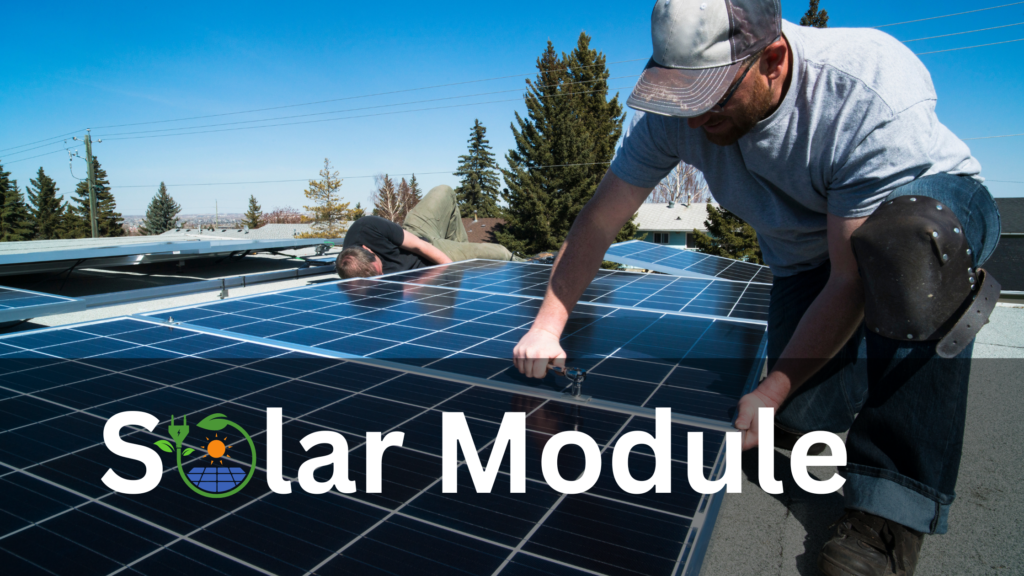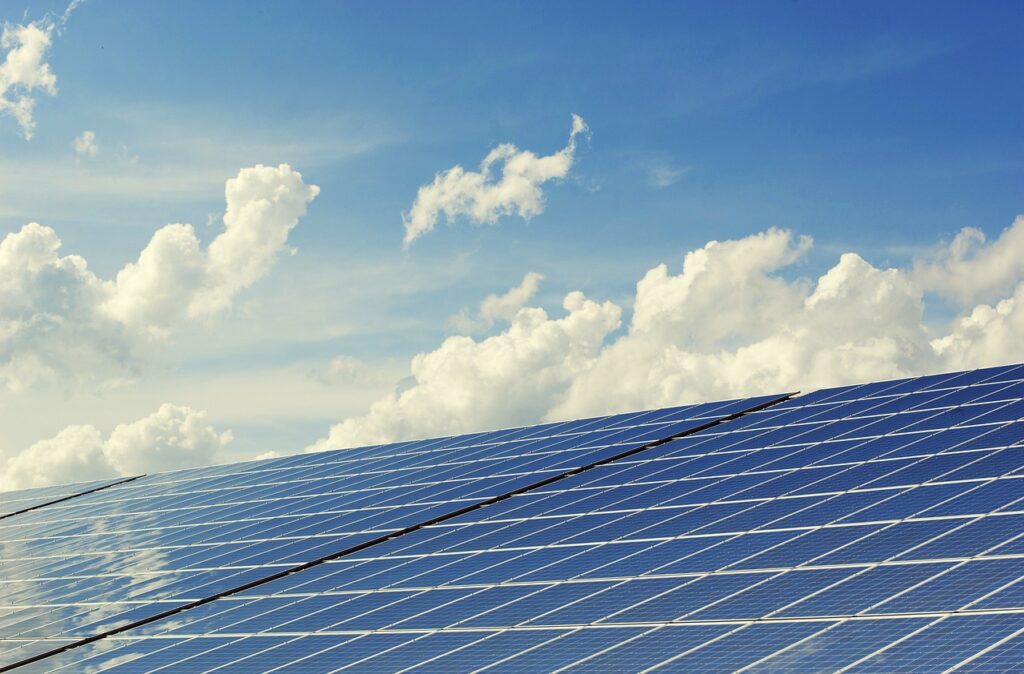"Top Strategies to Enhance Your Solar Module Efficiency"
Switch to Solar!
Solar energy is rapidly becoming a mainstream source of renewable energy, and with good reason. Solar modules, commonly known as solar panels, convert sunlight into electricity, offering a sustainable and eco-friendly energy solution. However, the efficiency of these solar modules can vary significantly depending on several factors. In this blog, we’ll explore top strategies to enhance your solar module efficiency, ensuring you get the most out of your solar investment.
Introduction to Solar Modules
Solar modules are devices that convert sunlight directly into electricity through photovoltaic (PV) cells. These cells are made from semiconductor materials, most commonly silicon. When sunlight hits the PV cells, it excites electrons, creating an electric current. This process, known as the photovoltaic effect, is the foundation of how solar modules generate electricity.
Maximizing the efficiency of solar modules is crucial for increasing the amount of electricity generated, which in turn can lead to greater energy savings and a shorter payback period for the initial investment. Several factors influence solar module efficiency, including the quality of the panels, their installation, and environmental conditions. In this blog, we will delve into effective strategies to optimize these factors and boost your solar module performance.
Understanding Solar Module Efficiency
Before diving into the strategies, it’s essential to understand what solar module efficiency means. Solar module efficiency is the ratio of the electrical output of a solar panel to the incident energy in the form of sunlight. It is expressed as a percentage. For instance, if a solar module has an efficiency of 20%, it means that 20% of the sunlight that strikes the panel is converted into usable electricity.
Efficiency is influenced by several factors:
Panel Quality: Higher quality panels typically have higher efficiency ratings.
Temperature: Higher temperatures can reduce the efficiency of solar modules.
Angle and Orientation: The angle at which the solar panels are installed relative to the sun affects the amount of sunlight they receive.
Shading: Any obstructions that cast shadows on the panels can significantly reduce their efficiency.
Maintenance: Dirt, dust, and debris on the panels can block sunlight and reduce efficiency.
Strategies to Enhance Solar Module Efficiency
1. Choose High-Quality Solar Modules
Investing in high-quality solar modules is one of the most effective ways to ensure high efficiency. While these panels may come at a higher initial cost, their superior performance and durability can offer better long-term value. Look for panels with high efficiency ratings and robust warranties from reputable manufacturers.
2. Optimal Placement and Orientation
The placement and orientation of your solar modules are critical for maximizing sunlight exposure. In the Northern Hemisphere, solar panels should generally face south to capture the most sunlight throughout the day. Additionally, the tilt angle should be adjusted based on your latitude to optimize exposure to the sun’s rays.
Regularly assessing and adjusting the orientation and angle of your solar panels can help maintain optimal performance. Some advanced systems even use tracking mounts that automatically adjust the panel’s position to follow the sun’s path, further enhancing efficiency.
3. Minimize Shading
Shading can drastically reduce the output of a solar module. Even partial shading on a single panel can impact the performance of the entire system. Ensure that your solar modules are installed in an area free from obstructions like trees, buildings, or chimneys that could cast shadows at any time of the day or year.
If shading is unavoidable, consider using microinverters or power optimizers. These devices can mitigate the impact of shading by optimizing the performance of each individual panel rather than the entire system.
4. Regular Maintenance and Cleaning
Keeping your solar modules clean is essential for maintaining their efficiency. Dirt, dust, bird droppings, and other debris can accumulate on the surface of the panels, blocking sunlight and reducing performance. Regular cleaning, at least a few times a year, can help ensure that your panels are operating at their peak efficiency.
Use a soft brush and mild detergent to clean the panels, and avoid abrasive materials that could scratch the surface. If you live in an area with heavy pollution or dust, you may need to clean the panels more frequently.
5. Install a Cooling System
Solar modules perform better at lower temperatures. Excessive heat can reduce the efficiency of the panels by increasing the resistance in the electrical circuits. Installing a cooling system, such as a water-cooling setup or passive air-cooling mechanisms, can help maintain optimal operating temperatures and enhance efficiency.
Some modern solar modules come with built-in cooling technologies that help dissipate heat more effectively. Investing in such advanced panels can provide better performance in hot climates.
6. Use High-Efficiency Inverters
The efficiency of your solar energy system also depends on the inverter, which converts the direct current (DC) electricity generated by the solar modules into alternating current (AC) electricity for use in your home or business. High-efficiency inverters can significantly reduce energy loss during this conversion process.
Opt for inverters with high efficiency ratings and consider microinverters or power optimizers to maximize the overall system performance.
7. Monitor Performance Regularly
Regular monitoring of your solar module system can help identify any issues that may be affecting its performance. Use a solar monitoring system to track the output of your panels and detect any irregularities. Early detection of problems such as shading, dirt accumulation, or malfunctioning components can allow for prompt corrective actions, ensuring optimal efficiency.
8. Upgrade to Advanced Solar Technologies
Advancements in solar technology continue to improve the efficiency and performance of solar modules. Consider upgrading to newer, more efficient technologies such as bifacial panels, which can capture sunlight from both sides, or thin-film solar modules, which offer better performance in low-light conditions.
While these technologies may come with higher upfront costs, their improved efficiency and potential for higher energy output can provide long-term benefits.
Conclusion
Enhancing the efficiency of your solar modules is crucial for maximizing the return on your investment and contributing to a more sustainable energy future. By choosing high-quality panels, optimizing their placement, minimizing shading, maintaining cleanliness, installing cooling systems, using high-efficiency inverters, monitoring performance, and staying updated with advanced technologies, you can significantly boost your solar module efficiency.
Investing time and resources into these strategies will not only increase the energy output of your solar system but also extend its lifespan and reliability. As solar energy continues to grow in importance, optimizing the performance of solar modules becomes essential for harnessing the full potential of this renewable energy source. Embrace these strategies to ensure your solar modules operate at their peak efficiency, providing clean and sustainable energy for years to come.


